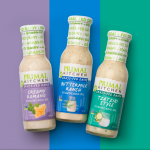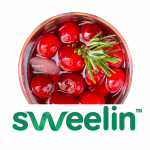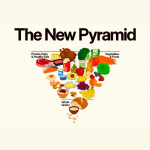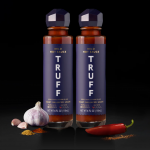Web3 Roundup: IBC Places High Hopes for the Metaverse into Cannaland

IBC Heads to Cannaland
New York-based advisory and investment firm InterContinental Beverage Capital (IBC) announced last month that it has partnered with tech company Cannaverse Technologies to serve as a brand advisor for Cannaland, a metaverse project intended to act as a hub for the cannabis consumers and members of the industry.
According to Stephen Horgan, co-founder and EVP of IBC, the firm has purchased “digital real estate” within Cannaland and intends to open a virtual house of brands where consumers can discover new cannabis products and suppliers, and where cultivators, retailers and investors can make connections with companies.
Currently, the Cannaland concept includes virtual reality, but Horgan said the company expects this digital platform to be accessible via a variety of platforms. Barring a change in federal marijuana laws, consumers won’t be able to purchase cannabis directly through the platform, instead being directed toward opportunities for web3-styled promotions such as NFTs that can then unlock or be traded for special products or discounts at dispensaries, among other benefits. Cannaland will also have its own cryptocurrency, Cannaland Tokens (CNLT).
But IBC and Cannaverse hope that the platform will reflect the new community-minded approach to digital life that metaverse and web3 proponents advocate. Horgan said that beyond marketing and brand activations, consumers will be able to buy virtual real estate in Cannaland, professionals can network with one another, and events like digital concerts will be commonplace.
“The way we’ve kind of talked about it since the beginning is Cannaland is kind of the cannabis parallel to Las Vegas,” Horgan told BevNET. “So even though Las Vegas is centered around gambling, for anybody that has been there, there’s regular retail there, there are brands, the whole thing is not about gambling. And so we see it the same way in Cannaland, where brands that want to expose themselves to the cannabis enthusiasts that will enter this reality, they will also [be able to] interact with retailers… So we want to create that reality.”
While web3 is a new frontier for IBC, Cannaland represents the latest expansion of the firm’s interest in the cannabis beverage and CPG sector. Since 2017, Horgan said cannabis has come to comprise about a third of IBC’s total business and it has worked with brands such as ebbu Hemp and non-alc beer maker CERIA to develop and launch THC-infused products.
“Our primary business is still in developing early stage beverage companies, because that’s our expertise,” he said. “But we’re branching out because we think the metaverse offers opportunities to the clients that we serve in our core businesses. So that’s why we’re developing it. We decided that it would expand the markets that they can access and it might compress the timeline [to market] and so forth.”
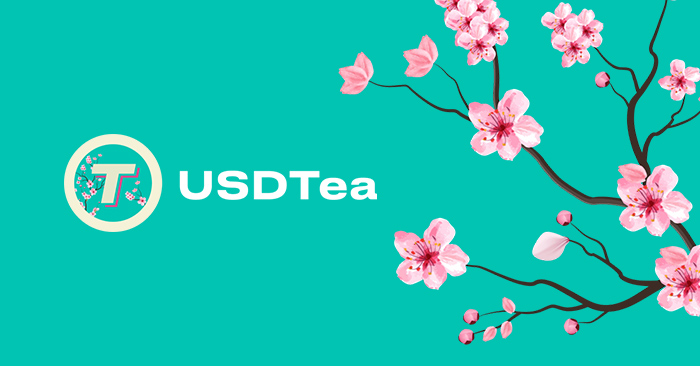
Stablecoin Backed by AriZona is Not Actually Backed by Company
Amid record high inflation, many consumers have looked towards iced tea maker AriZona Beverage, renowned for its dedication to its 99-cent can, as a rare symbol of stability within a tumultuous market. The ubiquity of the low price even prompted a quip from the company’s Twitter account: “AriZona stablecoin when??”
Well, some in the web3 community took that prompt to heart. Just days after AriZona’s tweet, the tech artist group Mossy launched USDTea, a crypto stablecoin backed by the price of AriZona’s cans. The New York-based iced tea company, however, was not involved in the project and only discovered the coin after it went viral on social media.
As its name suggests, a stablecoin is a cryptocurrency that aims to remain stable by tying its value to another asset, providing an alternative to the volatile price fluctuations of popular cryptocurrencies like Bitcoin and Ethereum. However, the stablecoin sector experienced a crisis last month when TerraUSD, a stablecoin tied to the value of the U.S. dollar, saw a sudden collapse wiping out over $400 billion in value.
Mossy’s USDTea coin meanwhile asserts that it will avoid any chaotic crashes by tying it to an asset that hasn’t budged in value in three decades.
“We plan to stabilize the troubled cryptocurrency ecosystem by introducing a new token backed by a hard asset that has maintained the same price for over 30 years: AriZona Iced Tea,” the group wrote on the USDTea website. “While other stablecoins attempt to peg to dollar amounts through questionable algorithms or opaque investment strategies, we guarantee our liquidity with sweet, delicious liquid.”
USDTea’s 1,000 coin drop sold out in about 90 minutes after going on sale. The coins can be redeemed for real cans of AriZona iced tea – for a $20 processing fee.
For what it’s worth, USDTea is intended to be tongue-in-cheek, although Mossy co-founder Brian Moore told TechCrunch that the group was considering expanding the coin offering but the project is more for laughs than profit: “If it makes us money, great, and if it doesn’t, then that’s fine too,” he said. “Ultimately, we’re just making interesting things — making people think, making people laugh, or, you know, stabilize their assets in canned iced teas.”
AriZona’s original Twitter post, meanwhile, was only intended as a joke and is not a sign of whether or not the company may seek to enter the web3 sector in the future. Talking to BevNET last week, AriZona CEO Abid Rizvi said the company was aware of the USDTea project but not involved, but he deferred further comment citing a lack of familiarity with web3.
Reached for follow up about the company’s reaction to USDTea, a spokesperson for AriZona sent the following:
“We are aware of it and appreciate it, but next time call us, we have access to more cans ;)”

Hummii Launches First Products, Plans NFT Drop
Web3 integrated startup Hummii Snacks launched its first product line in Los Angeles last month with Points!, a premium line of clean label chocolate candies made without added sugar. The rollout will be accompanied this summer with an NFT drop intended to establish the “Hummiiverse,” a brand-based community intended to give consumers access to exclusive products and perks
The launch of Points! culminates a long road to market for Hummii, which was founded by Tyler Phillips in early 2020. The company ran a Kickstarter campaign last year to fund a line of mini muffins, but the launch ran into a myriad of problems after the company struggled to secure co-packing space and has been delayed indefinitely. However, Phillips said that inspiration struck after sampling a line of candies one of his suppliers had developed for the brand.
“This product came along from the ingredients supplier for use as an inclusion in some of our other products, we’ve been developing puddings on the side and for the mini muffins that are still in progress,” Phillips said. “I shared it with my roommates one night and wasn’t even thinking of it as a product. And then one of them joked, they were like ‘Why don’t you just package it up and launch it? Because I think it would just be a lot easier than trying to formulate a mini muffin.’”
Positioned as a better-for-you alternative to M&M’s, Points! are also keto-friendly and free of the top 14 allergens. Each 100 gram bag contains four servings and will retail for $7.99-$9.99 per unit. The candies are now available in Los Angeles area retailers including The Hive, Madame Shugah, P’Oh Keto, Treat Yourself Keto, Life Food Organics, Plant-X in Venice, Rainbow Acres, AKASHA and Double Zero. Phillips said he hopes to expand the brand nationwide by the end of the year.
The launch of Points! is part of Phillips’ larger goal of establishing the Hummiiverse brand platform online with NFT drops and community chat groups. The company had previously planned to introduce a line of NFTs in February which could be purchased with credit or debit cards instead of cryptocurrency, but a last minute technical update by the platform provider forced Phillips to cancel the drop. Now, Hummii has opened a drop page where consumers can sign up for early access; those who do will receive a free NFT that entitles them to discounts on Points! and the opportunity to purchase exclusive products.
Phillips said the goal is to make web3 more accessible for the everyday consumer and providing free NFTs with fewer barriers to ownership – such as the need for wallets – is intended to help grow the brand and the web3 industry overall. Although the company is not structured as a DAO, those involved in the Hummii online community will also be able to pitch ideas for the brand.
“We’re trying to not keep it so guard railed, you want the community to be involved as much as possible,” he said. “And so if people arrive with awesome ideas that kind of fit within the Hummii brand and some of the concepts that we’ve envisioned and outlined, and we want to support them to help make this happen.”
More News from the Intersection of Web3 and CPG:
- Ryan Bethencourt, CEO of plant-based dog food brand Wild Earth, announced the launch of Layer One Ventures, a new fund that will invest in web3 technology startups with a check size of $50,000 to $250,000.
- NFT artists ZENFT have partnered with Calexo to produce Sakura Sunset, a limited edition “collectible” beverage.
- Last month, Pepsi announced that it had partnered with Billboard and MRC Live & Alternative to allow consumers to mint NFTs in real time during the 2022 Billboard Music Awards, which were held on May 15.
- Spice maker McCormick partnered with influencer Tabitha Brown for an augmented reality campaign that will allow consumers to place a hologram of Brown in their home kitchens. The campaign is in promotion of the company’s new Sunshine Seasoning developed in partnership with Brown.



